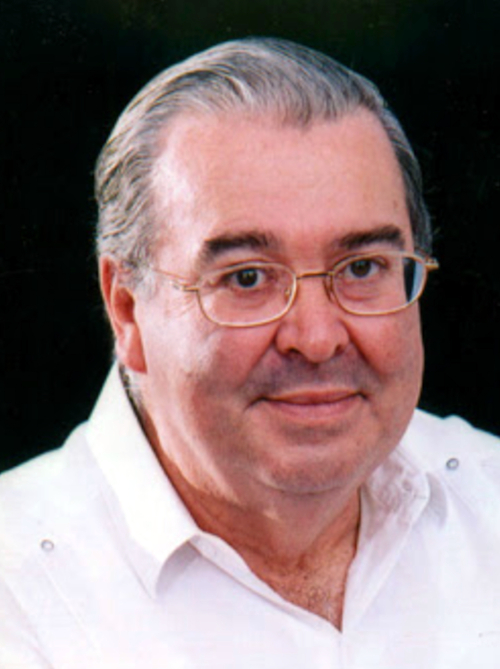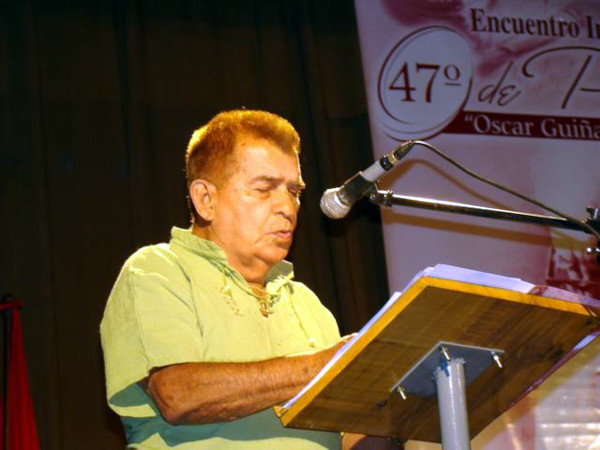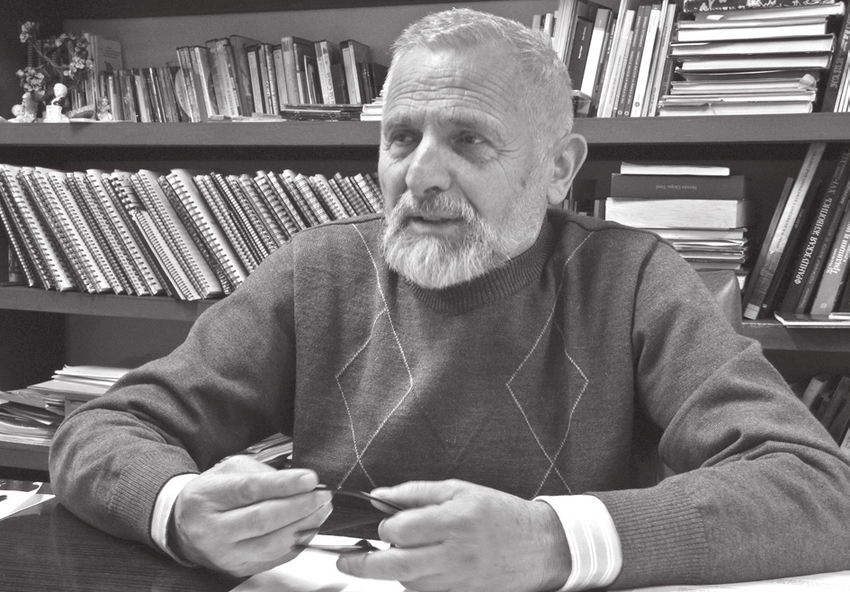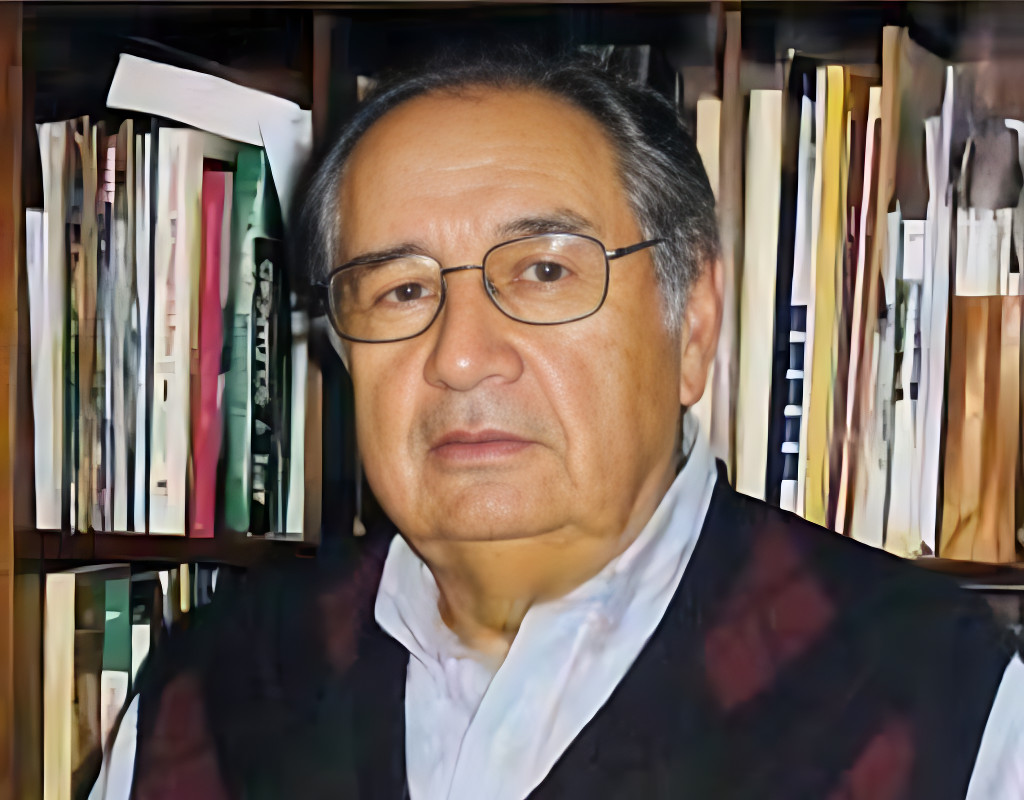Rodolfo Pérez Pimentel (Guayaquil, November 2, 1939) is an Ecuadorian lawyer, historian, and biographer. He was declared the lifetime chronicler of the city of Guayaquil, and is a member of the National Academy of Ecuadorian History. Pérez Pimentel is the author of the Biographical Dictionary of Ecuador (Diccionario biográfico del Ecuador), which consists of about 1,600 biographies of nationals and foreigners who have been an integral part of Ecuador. In 2005, Pérez Pimentel won the Eugenio Espejo Prize in the literature category for his lifetime work as a biographer. Rodolfo Pérez Pimentel is a highly respected figure in Ecuadorian literary and historical circles, known for his dedication to research, his extensive publications, and his commitment to preserving the cultural heritage of Guayaquil and Ecuador as a whole.
Early Life and Education
Rodolfo Pérez Pimentel was born on November 2, 1939, in Guayaquil, Ecuador, to Rodolfo Pérez Concha and María Pimentel Yépez. He spent his childhood in Guayaquil, developing an early interest in history and genealogy, greatly influenced by his grandfather and the historical anecdotes shared by family members. He completed his primary education at Colegio Internacional and San José de La Salle, followed by his secondary education at Colegio Nacional Vicente Rocafuerte, from which he graduated in 1958.
Pérez Pimentel entered the Faculty of Jurisprudence, Social, and Political Sciences at the University of Guayaquil in 1959. He earned his bachelor’s degree in 1963, becoming a licensed attorney in 1968. He later obtained a Doctorate in Jurisprudence in 1979.
Personal Life
Rodolfo Pérez Pimentel married Nuria Puig-Mir Game, with whom he had three children: Diego, Nuria, and Antonio. His personal life was closely tied to his scholarly pursuits, with his family supporting his dedication to Ecuador’s cultural and historical preservation.
Literary and Scholarly Career
Pérez Pimentel is best known as a historian, genealogist, and biographer. He gained prominence for his extensive research in Ecuadorian history and genealogy, publishing significant works like Nuestro Guayaquil de Antaño, Heráldica Ecuatoriana, and Diccionario Biográfico Ecuatoriano. The Diccionario, a cornerstone of his literary career, spans over 25 volumes and includes around 1,600 biographies of Ecuadorian and foreign figures who played pivotal roles in the nation’s history.
In 1981, Pérez Pimentel founded the Research and Culture Center of the Central Bank of Ecuador in Guayaquil, further cementing his role as a guardian of Ecuadorian cultural heritage. His writing also extended to topics like parapsychology, with works such as Parasicología, a collection of stories about the afterlife in Ecuador.
Public Service
Throughout his career, Pérez Pimentel held numerous public positions. He served on the Department of History and Geography of the State Council in 1975 and as a Culture Councilor for Guayaquil the following year. In 1978, the Municipality of Guayaquil honored him by declaring him the Lifetime Chronicler of the city, recognizing his dedication to preserving its history. He also contributed to the founding of the Academy of Maritime History of Ecuador in 1986.
Recognitions and Accolades
Pérez Pimentel’s lifetime of work was widely recognized. Among his most notable awards are:
- Eugenio Espejo Prize (2005): He received Ecuador’s highest literary honor in the literature category, acknowledging his extensive contributions as a biographer.
- Vicente Rocafuerte Medal “Al Mérito Cultural” (2005): Awarded by the National Congress, this medal recognized his cultural contributions.
- National Order of Merit (2006): Pérez Pimentel was granted the Order of Merit in the degree of Comendador for his lifetime achievements.
Legacy
Rodolfo Pérez Pimentel’s contributions to Ecuadorian literature and history are invaluable. His Diccionario Biográfico Ecuatoriano remains a foundational work for scholars and the general public alike, ensuring that the lives and contributions of significant historical figures in Ecuador are well documented and accessible. His meticulous approach to genealogy and biography has preserved the cultural heritage of Guayaquil and Ecuador for future generations, making him a pivotal figure in the preservation of Ecuadorian history.
Selected works
- Nuestro Guayaquil de Antaño
- Relatos de Antaño
- Heráldica Ecuatoriana
- Parasicología
- Cosas de Mi Tierra
- Anecdotario de Literatos
- Diccionario Biográfico Ecuatoriano
References
- Rodolfo Pérez Pimentel Official Website. “Biografía.” Accessed September 27, 2024.
- Wikipedia. “Rodolfo Pérez Pimentel.” Accessed September 27, 2024.
- Enciclopedia del Ecuador. “Dr. Rodolfo Pérez Pimentel.” Accessed September 27, 2024.



